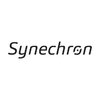Filter interviews by
IAP Company Plsql Developer Interview Questions and Answers
IAP Company Plsql Developer Interview Experiences
1 interview found
Interview Questionnaire
1 Question
- Q1. What is cursor? What is trigger & trigger performance
- Ans.
A cursor is a pointer to a private SQL area that stores information about the processing of a SELECT or DML statement. A trigger is a stored program that is executed automatically in response to certain events or actions.
A cursor is used to retrieve data from a result set one row at a time
A trigger can be used to enforce business rules, audit changes to data, or replicate data to other tables
Triggers can be classified ...
Skills evaluated in this interview
Top trending discussions






Interview questions from similar companies

Plsql Developer Interview Questions & Answers
Virtusa Consulting Servicesposted on 25 Jul 2023
I applied via Naukri.com and was interviewed in Jun 2023. There were 4 interview rounds.

3omins of coding knowledge testing
(2 Questions)
- Q1. Client round to check the pervious project knowledge, present requirement testing
- Ans.
Discussing previous project experience and current testing requirements in PL/SQL development.
Experience with PL/SQL procedures and functions, e.g., creating a procedure to calculate patient billing.
Familiarity with testing frameworks like utPLSQL for unit testing PL/SQL code.
Knowledge of performance tuning in PL/SQL, e.g., optimizing queries using indexes.
Experience in writing test cases for stored procedures, ensurin...
- Q2. Tell me about your current project
(1 Question)
- Q1. Basicaly salary negotiation


(4 Questions)
- Q1. Difference between delete, drop and truncate
- Ans.
Delete removes rows from a table, drop removes the entire table, and truncate removes all rows from a table.
Delete is a DML operation and can be rolled back, but it is slower than truncate.
Drop is a DDL operation and cannot be rolled back. It removes the table and all associated objects.
Truncate is a DDL operation and cannot be rolled back. It removes all rows from the table but keeps the table structure.
Delete and tru...
- Q2. Difference between table and view
- Ans.
Table stores data in a structured format while view is a virtual table created from a query.
Table is a physical object while view is a logical object.
Table can be modified while view cannot be modified directly.
Table can have indexes while view cannot have indexes.
Table can have constraints while view cannot have constraints.
View can be used to simplify complex queries by joining multiple tables.
View can be used to res...
- Q3. What type of cursors did you use
- Ans.
I have used both implicit and explicit cursors in PL/SQL development.
Implicit cursors are used for single-row queries while explicit cursors are used for multi-row queries.
I have used explicit cursors with parameters to make the query more dynamic.
I have also used cursor variables to pass cursors as parameters to procedures and functions.
Examples of cursor types I have used include FOR LOOP, FETCH, and UPDATE cursors.
- Q4. What is primary key and unique key
- Ans.
Primary key uniquely identifies a record in a table, while unique key ensures uniqueness of a column or set of columns.
Primary key is a column or set of columns that uniquely identifies each record in a table
Unique key ensures that a column or set of columns have unique values
Primary key cannot have null values, while unique key can have null values
A table can have only one primary key, but multiple unique keys
Interview Preparation Tips
Frame your answer correctly.if you don't know any complex question ask the interviewer at the end
Skills evaluated in this interview

Plsql Developer Interview Questions & Answers
Virtusa Consulting Servicesposted on 30 Aug 2024
I applied via Job Portal
(1 Question)
- Q1. What is plsql and sql
- Ans.
PL/SQL is a procedural extension of SQL used for writing stored procedures, functions, triggers, and packages in Oracle databases.
PL/SQL stands for Procedural Language/Structured Query Language
It is used to write procedural code like stored procedures, functions, triggers, and packages in Oracle databases
SQL (Structured Query Language) is a standard language for accessing and manipulating databases
SQL is used to query,...
Questions on plsql and sql in general
Skills evaluated in this interview

I applied via Monster
(3 Questions)
- Q1. Write query to get result based on hughest salary
- Ans.
Use SQL query with ORDER BY clause to get result based on highest salary
Use SELECT statement to retrieve data from the table
Use ORDER BY clause with DESC keyword to sort salaries in descending order
Use LIMIT or FETCH FIRST clause to limit the result to only one row
- Q2. Writw merge query
- Ans.
A MERGE query combines INSERT and UPDATE operations to synchronize two tables based on a condition.
The MERGE statement is used to perform DML operations based on a condition.
Syntax: MERGE INTO target_table USING source_table ON (condition) WHEN MATCHED THEN UPDATE SET ... WHEN NOT MATCHED THEN INSERT ...
Example: MERGE INTO employees e USING new_employees ne ON (e.id = ne.id) WHEN MATCHED THEN UPDATE SET e.salary = ne.s...
- Q3. Bulk collect and bulk binding difference
- Ans.
Bulk collect is used to fetch multiple rows into collections at once, while bulk binding is used to bind collections to SQL statements for improved performance.
Bulk collect fetches multiple rows into collections in a single operation, reducing context switches and improving performance.
Bulk binding binds collections to SQL statements, reducing the number of context switches between the PL/SQL engine and SQL engine.
Bulk...
Skills evaluated in this interview

(2 Questions)
- Q1. CREATE A FUNCTION BASED ONLOGIC SHARED
- Ans.
Create a function based on shared logic
Identify common logic that can be reused in multiple functions
Create a separate function to encapsulate the shared logic
Call the shared function from other functions where the logic is needed
- Q2. FOR AN ENTITY GIVE DTAILS OF PREVOUS AND NEXT DATE FOR PARTICULAR DEPATMENT
- Ans.
Retrieve previous and next dates for a specific department's entity in a database using PL/SQL.
Use a SELECT statement with JOINs to fetch data from relevant tables.
Utilize the LEAD() and LAG() analytic functions to get next and previous dates.
Example: SELECT department_id, date_column, LAG(date_column) OVER (PARTITION BY department_id ORDER BY date_column) AS previous_date, LEAD(date_column) OVER (PARTITION BY departme...

(2 Questions)
- Q1. Basic SQL related question
- Q2. Good knowledge on pl SQL is preferred, few in-depth questions . Keep your cool and answer every question with best of your knowledge
Interview Preparation Tips

I applied via Naukri.com and was interviewed in Jun 2022. There were 2 interview rounds.

(2 Questions)
- Q1. Triggers , procedures , exception handling , collections, package
- Q2. Type , array, partition, performance tuning, AWR
Interview Preparation Tips

I applied via Naukri.com and was interviewed in May 2021. There were 3 interview rounds.
Interview Questionnaire
10 Questions
- Q1. Oracle instance architecture
- Q2. Redo log buffer
- Q3. Difference between Procedure and function
- Ans.
Procedures and functions are both PL/SQL program units, but they have some key differences.
Procedures do not return a value, while functions do.
Procedures can have OUT parameters to pass values back to the caller, while functions cannot.
Functions can be used in SQL statements, while procedures cannot.
Functions must return a value, while procedures do not necessarily have to.
Procedures are typically used for performing ...
- Q4. Difference between implicit and explicit cursor
- Ans.
Implicit cursors are automatically created by the Oracle server, while explicit cursors are explicitly declared by the programmer.
Implicit cursors are used for single-row queries, while explicit cursors are used for multi-row queries.
Implicit cursors are automatically opened, fetched, and closed by the Oracle server, while explicit cursors need to be manually opened, fetched, and closed by the programmer.
Implicit curso...
- Q5. Difference between soft parsing and hard parsing of sql
- Ans.
Soft parsing is reusing the existing execution plan while hard parsing is generating a new execution plan.
Soft parsing is faster as it avoids the overhead of generating a new execution plan.
Hard parsing is slower as it involves generating a new execution plan.
Soft parsing occurs when the SQL statement is already in the shared pool.
Hard parsing occurs when the SQL statement is not in the shared pool or needs a new execu...
- Q6. Difference between rdbms and dbms
- Ans.
RDBMS is a type of DBMS that stores data in a structured manner using tables with relationships.
DBMS is a software system that manages data stored in a computer's memory or disk storage.
RDBMS is a type of DBMS that uses a relational model to store data in tables with relationships.
RDBMS supports ACID properties (Atomicity, Consistency, Isolation, Durability) for data integrity.
Examples of RDBMS include Oracle, MySQL, S...
- Q7. Write a sql to find nth highest salary
- Ans.
SQL query to find the nth highest salary
Use the ORDER BY clause to sort the salaries in descending order
Use the LIMIT clause to select the nth highest salary
- Q8. Write a sql to delete duplicate records from a table
- Ans.
SQL query to delete duplicate records from a table.
Use the DELETE statement with a subquery to identify and delete duplicate records.
The subquery should select the duplicate records based on the criteria for duplication.
Ensure to keep at least one copy of the duplicate records to avoid deleting all instances.
- Q9. Difference between delete and truncate
- Ans.
Delete is a DML operation that removes specific rows from a table, while truncate is a DDL operation that removes all rows from a table.
Delete is slower than truncate as it generates undo logs and triggers
Delete can be rolled back, while truncate cannot be rolled back
Delete operation maintains the integrity of the transaction log, while truncate operation does not
Delete operation fires delete triggers, while truncate o...
- Q10. Scenario based questions on exceptions in plsql
Skills evaluated in this interview

I applied via Recruitment Consulltant and was interviewed before Apr 2023. There was 1 interview round.
(1 Question)
- Q1. Asked few SQL queries from basics to intermediate level, and asked to write plsql code with exceptions . Increased difficulty level in the same program step by step.
Tell us how to improve this page.
IAP Company Interviews By Designations
Interview Questions for Popular Designations
- Software Developer Interview Questions
- Java Developer Interview Questions
- System Engineer Interview Questions
- Associate Interview Questions
- Web Developer Interview Questions
- Application Developer Interview Questions
- Salesforce Developer Interview Questions
- Lead Engineer Interview Questions
- Show more
Plsql Developer Interview Questions from Similar Companies
|
Programmer
6
salaries
| ₹1.8 L/yr - ₹3.4 L/yr |
|
Assistant Manager
4
salaries
| ₹5.6 L/yr - ₹5.8 L/yr |
|
Senior Programmer
4
salaries
| ₹6.6 L/yr - ₹10 L/yr |
|
Senior Executive Operations
4
salaries
| ₹3 L/yr - ₹3.2 L/yr |
|
First class Boiler Operator
4
salaries
| ₹2 L/yr - ₹3 L/yr |

Cognizant

EXL Service

Sutherland Global Services

Optum Global Solutions
- Home >
- Interviews >
- IAP Company Interview Questions













